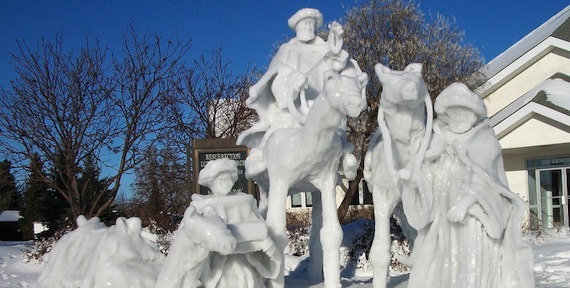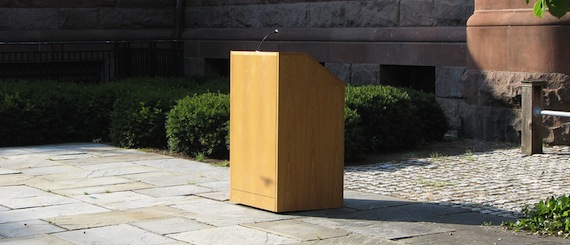 This past Sunday, we began our new sermon series for the middle school ministry for the month of February. Cooties is a series about friendships, dating, identity, and sexual purity. For four weeks we are going to be looking at what we can learn about dating and relationships during the middle school years.
This past Sunday, we began our new sermon series for the middle school ministry for the month of February. Cooties is a series about friendships, dating, identity, and sexual purity. For four weeks we are going to be looking at what we can learn about dating and relationships during the middle school years.
More Than Friends
During middle school, it is very normal for people to begin having the desire to be "more than friends." Because of the changes that are happening, during this age we begin to look at the opposite sex differently. While 3rd graders focus on playing tag with the opposite gender, 7th graders begin to have all kinds of ideas about what it means to be boyfriend and girlfriend. These new attractions are normal; it's part of growing up. Now, what we do with these new attractions is a very important discussion to have.
Is Dating in Middle School Beneficial?
The Bible doesn't ever say that dating in middle school is a sin, so I cannot say that it is not allowed. It might be a sin, however, if dating in middle school is causing you to sin in the way you're treating others, the way you're talking or what you're doing with your significant other, or if your parents say you are not allowed. But let's say none of this is happening, is dating in middle school beneficial?
In 1 Corinthians 10:23 Paul writes, “Everything is permissible”—but not everything is beneficial. “Everything is permissible”—but not everything is constructive." Paul isn't specifically talking about dating, in fact he's talking about dietary laws. But I think the truth of this statement holds significant value to the dating discussion in middle school. Dating in middle school may be allowed, but is it helpful?
If you say yes...
I would argue it's not beneficial, but you might argue yes. And if you argue yes there are some important things to be aware of that might come along with dating.
- What do your parents say? If they say no, don't do it.
- Spend time in groups while dating in middle school. You can really get to know people this way.
- What will you do when it comes to break ups? Do you want to deal with that yet?
- What's your motivation for dating? Is it something other than finding a future spouse?
- There are a whole bunch of new temptations. (You need to be thinking about your sexual purity)
- Can you maintain your normal friendships while having a boyfriend/girlfriend?
That's a lot to think about and manage. At some point even with everything that comes along with dating, it is still worth it because the benefit is finding a spouse but is that something you want to be worrying about in middle school?
If you say no...
I think that's a smart decision; I am not saying you shouldn't like or "like like" people. There will still be certain individuals that you have crushes on and you want to spend more time with than the others, but you are simply deciding that the most beneficial thing is to not worrying about having a boyfriend or girlfriend right now.
So what do you do?
1. Don't date. If you don't think it's beneficial, don't do it.
2. Learn to be a great friend right now. The qualities that will be important for you in being a good boyfriend or girlfriend or finding one, will probably be the same qualities that are important in having a good friendship. Right now learn how to be a great friend to the opposite sex and that will be of significant value when you do decide to start dating.




 [This post is a part of the
[This post is a part of the  The Christmas story is a story about a king and full of kings who have opinions about this newborn king. We commonly sing about the Magi who visit Jesus as the "3 Kings" or "3 Wisemen." They come to visit Jesus with a set of unusual gifts. We also cannot forget the evil King Herod who seeks to kill the newborn baby Jesus. There's also a third king that we less often talk about, but is mentioned and that is Caesar, who rules even over Herod. The implications for the birth of Jesus, the newborn King, can be seen in the lives of these kings in the Christmas story. The kings force us to ask ourselves who do we worship... who is our king?
The Christmas story is a story about a king and full of kings who have opinions about this newborn king. We commonly sing about the Magi who visit Jesus as the "3 Kings" or "3 Wisemen." They come to visit Jesus with a set of unusual gifts. We also cannot forget the evil King Herod who seeks to kill the newborn baby Jesus. There's also a third king that we less often talk about, but is mentioned and that is Caesar, who rules even over Herod. The implications for the birth of Jesus, the newborn King, can be seen in the lives of these kings in the Christmas story. The kings force us to ask ourselves who do we worship... who is our king? I've recently been spending some time with our worship planning team as we've discussed Christmas services and the upcoming calendar year. One of the tools that I've found indespinsible when it comes to discussing music for worship services is Spotify. I've had
I've recently been spending some time with our worship planning team as we've discussed Christmas services and the upcoming calendar year. One of the tools that I've found indespinsible when it comes to discussing music for worship services is Spotify. I've had  Every year as we decorate the house to celebrate the Christmas season, we make sure to get our non-Christmas decoration out on the mantle. We put up our Christmas tree filled with ornaments, hang our stockings, put out the Christmas kitchen towels, and set the menorah up on the mantle. I'm not Jewish. I have never been Jewish, but I love to celebrate Hanukkah during the holiday season. Why? Simple, because Jesus celebrated Hanukkah.
Every year as we decorate the house to celebrate the Christmas season, we make sure to get our non-Christmas decoration out on the mantle. We put up our Christmas tree filled with ornaments, hang our stockings, put out the Christmas kitchen towels, and set the menorah up on the mantle. I'm not Jewish. I have never been Jewish, but I love to celebrate Hanukkah during the holiday season. Why? Simple, because Jesus celebrated Hanukkah. If you want to be a better
If you want to be a better  Preaching is one of the most important things that happen in the life of a church. Preachers must regularly work on their craft. I love preaching. It is one of my favorite parts of being in
Preaching is one of the most important things that happen in the life of a church. Preachers must regularly work on their craft. I love preaching. It is one of my favorite parts of being in